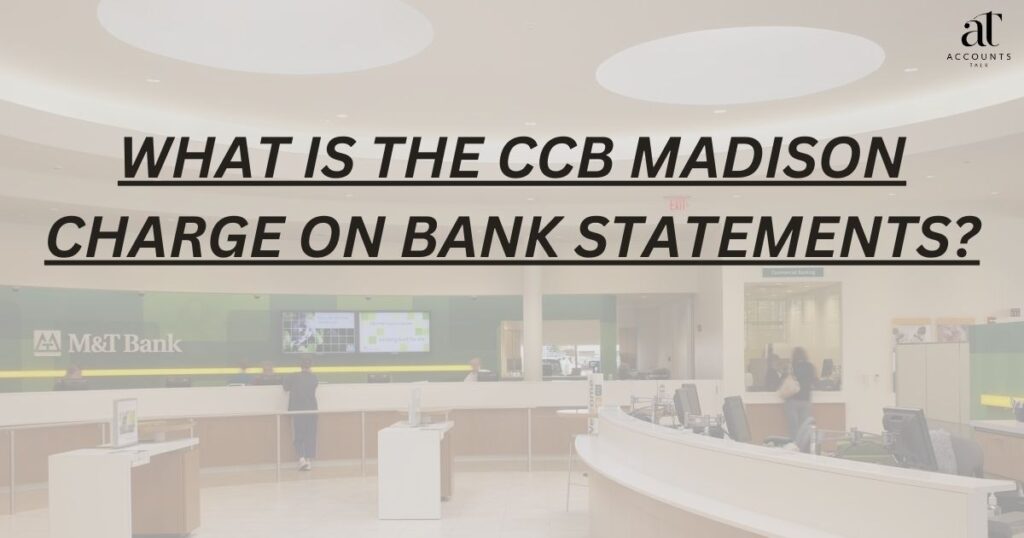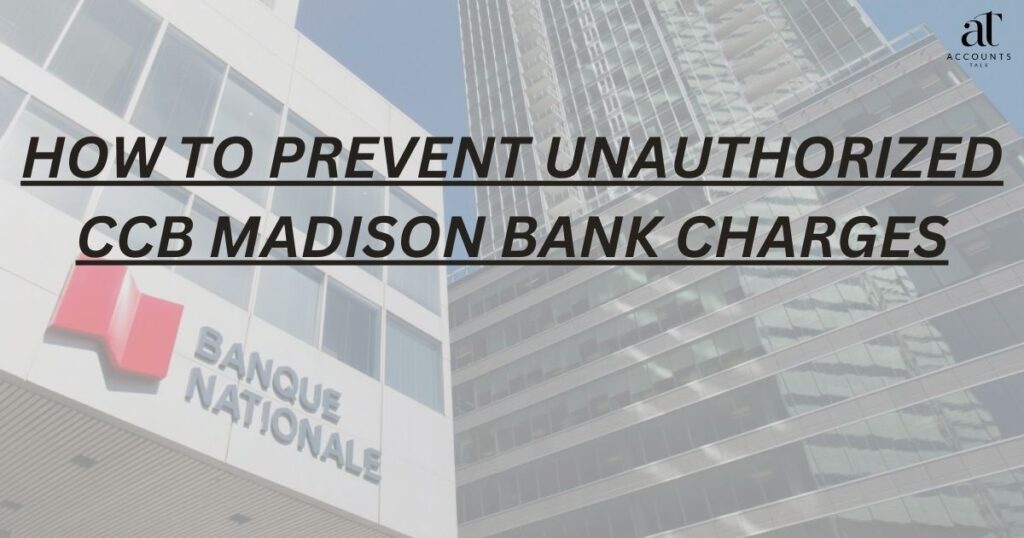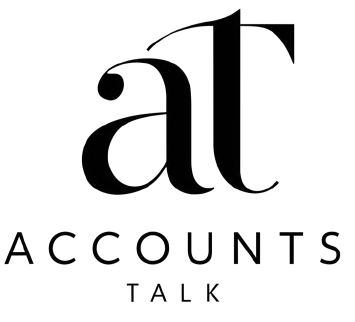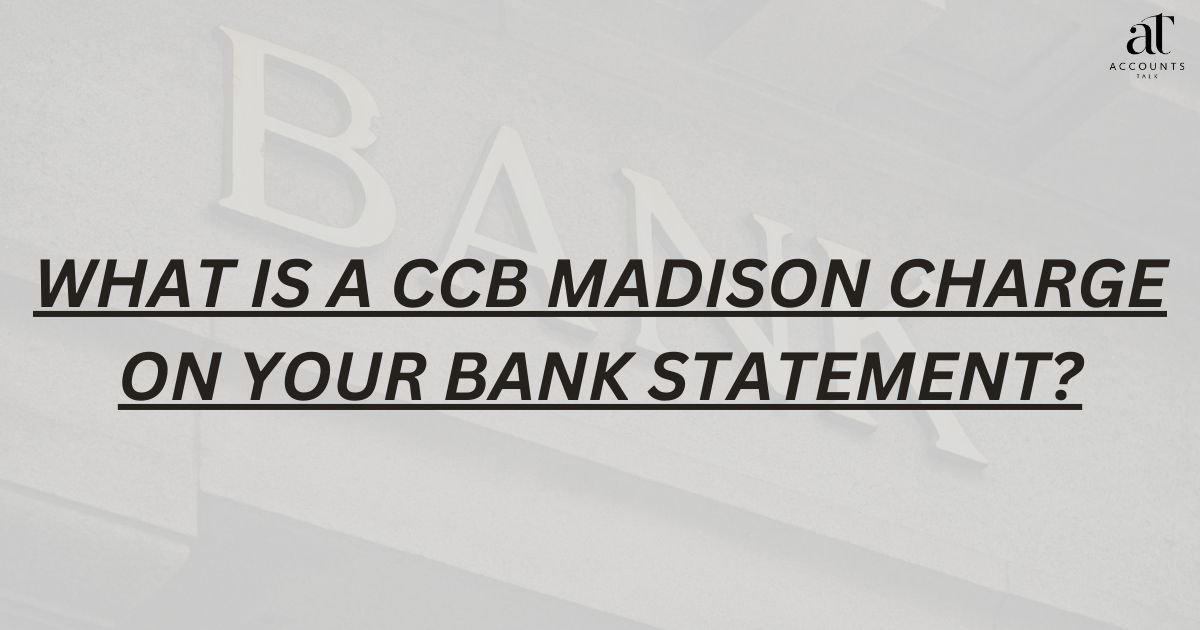Ever glanced at your bank statement and spotted a puzzling “CCB MADISON” charge? You’re not alone. Many folks scratch their heads when they see this mysterious entry. But don’t worry, we’re about to lift the veil on this common yet often misunderstood charge.
Let’s dive into the world of CCB MADISON and demystify what it means for your wallet.
What is CCB MADISON charge on your bank statement?
Picture this: You’re strolling through a mall, feeling a bit parched. You spot a vending machine and decide to treat yourself to an ice-cold Coca-Cola. You swipe your card, grab your drink, and go about your day. Fast forward to when you’re checking your bank statement, and there it is – a charge from “CCB MADISON”.
Here’s the scoop: CCB MADISON is a legitimate charge that pops up when you use your credit or debit card to buy a soda or other beverage from a vending machine. It’s not some sneaky fee or a scam – it’s simply how these small purchases show up on your statement.
But why “CCB MADISON“? Well, CCB stands for Coca-Cola Bottling, and Madison is likely a reference to the location of the company’s processing center. It’s like a little code that tells your bank, “Hey, this person bought a drink from a Coca-Cola vending machine!“
What is the CCB Madison charge on bank statements?

Let’s break it down further. When you see a CCB Madison charge, it’s essentially a record of a small purchase you made. It’s the banking world’s way of saying, “Remember that soda you bought? Here’s where that money went.“
These charges are typically for small amounts – we’re talking a few bucks at most. They’re the kind of purchases you might easily forget about, which is why it’s so important to understand what they are.
Here’s a quick rundown of what a CCB Madison charge tells you:
- You made a purchase from a vending machine
- The purchase was likely a Coca-Cola product or another beverage
- The transaction was processed through CCB Madison
It’s like a breadcrumb trail leading back to that moment of thirst-quenching decision-making!
How does the CCB Madison charge appear?
Now, here’s where things can get a bit tricky. The CCB Madison charge doesn’t always show up in the exact same way. It’s like a chameleon, changing its appearance slightly depending on your bank and how the transaction is processed.
Here are some common variations you might see:
- CCB Madison Tampa Fl US
- CCB Madison
- CCB Madison Tampa
- CCB Madison Tampa Fl
- CCB madison, tampa . fl
- CCB Madison, FL
Don’t let these different forms throw you off. They’re all referring to the same thing – your vending machine purchase.
Pro tip: If you’re ever unsure about a charge, keep your receipts or take a quick photo of the vending machine after your purchase. It’s like creating your own personal paper trail!
More Post: What is ACHMA VISB BILL PYMNT on Your Bank Statement?
Why did the CCB Madison charge appear?
Alright, let’s pull back the curtain and see what’s happening behind the scenes when you make that vending machine purchase.
- The Swipe: You swipe your card at the vending machine. In that instant, an authorization request zips off to your bank.
- The Check: Your bank quickly checks if you have enough funds. It’s like a lightning-fast conversation: Vending machine: “Hey, can this card cover a $2 purchase?” Bank: “Yep, they’re good for it!“
- The Hold: If you’ve got the funds, your bank puts a temporary hold on that amount. It’s like reserving a tiny slice of your money pie.
- The Wait: Here’s where things get interesting. Most vending machine companies don’t process each transaction right away. Instead, they gather up all the day’s (or week’s) transactions and process them in one big batch.
- The Charge: Finally, when the batch is processed, the CCB Madison charge appears on your statement.
This process explains why you might buy a soda on Monday, but not see the CCB Madison charge until Wednesday or Thursday. It’s not magic – just the sometimes slow-moving gears of the financial world!
How to prevent unauthorized CCB madison bank charges

While CCB Madison charges are usually legitimate, it’s always smart to keep an eye out for any fishy business. Here’s how you can stay on top of your game:
- Regular Check-ins: Make checking your bank statement a habit. It’s like giving your finances a quick health check-up.
- Set Up Alerts: Many banks offer text or email alerts for purchases. It’s like having a tiny financial bodyguard in your phone.
- Keep Track: If you use vending machines often, jot down when and where you make purchases. It’s your personal vending machine diary!
- Question the Unfamiliar: Don’t recognize a charge? Don’t be shy – call your bank and ask questions. Better safe than sorry!
Check recurring services
Sometimes, a CCB Madison charge might pop up regularly if you’re using a vending machine service at work or school. Here’s how to keep tabs on these:
- Review your statement for patterns
- Check if the charges align with your vending machine use
- Look out for any unexpected increases in frequency or amount
File a dispute
If you’ve spotted a CCB Madison charge that you’re sure isn’t yours, it’s time to put on your detective hat and file a dispute. Here’s your game plan:
- Gather Evidence: Collect your bank statements and any receipts you have.
- Contact Your Bank: Reach out to your bank’s dispute department. Most have a specific process for this.
- Explain the Situation: Clearly describe why you believe the charge is unauthorized.
- Follow Up: Stay on top of the dispute process. It’s like following a package delivery – you want to know where it’s at!
Cancel your credit card
Canceling your card is like using a sledgehammer to crack a nut – it’s a last resort. Only consider this if:
- You’ve noticed multiple unauthorized charges
- Your bank’s fraud department advises it
- You have strong reason to believe your card info has been compromised
Remember, canceling a card can be a hassle. You’ll need to update any recurring payments and wait for a new card. It’s like moving houses – sometimes necessary, but always a bit of a pain!
Conclusion
And there you have it, folks! The mystery of the CCB Madison charge, unraveled. Let’s recap the key points:
- CCB Madison charges are typically for vending machine purchases, often Coca-Cola products
- They’re legitimate charges, just with a quirky name
- The charge might not appear immediately due to batch processing
- Always keep an eye on your statement and question anything unfamiliar
Remember, understanding your bank statement is like learning a new language – it takes time, but it’s a valuable skill. By staying informed and vigilant, you’re taking control of your financial story. So the next time you see a CCB Madison charge, you can nod knowingly and think, “Ah yes, that was that refreshing soda I enjoyed last Tuesday!“
FAQs
Q: What is a bank charge on a bank statement?
A bank charge on your statement is a record of a transaction or fee. It’s like a financial fingerprint, showing where your money went or what service your bank provided.
Q: What is CCBill on my bank statement?
CCBill is different from CCB Madison. It’s an online payment processor, often used for digital goods or subscription services. If you see this and don’t recognize it, it’s worth investigating further.
Q: Can I get a refund for a CCB MADISON charge?
If the charge is legitimate (i.e., you did buy a drink), refunds are typically not available. However, if it’s unauthorized, contact your bank to dispute the charge.
Q: How long does a CCB MADISON charge take to process?
It can vary, but typically these charges appear within 2-5 business days due to batch processing.
Q: Are CCB MADISON charges always for Coca-Cola products?
While often associated with Coca-Cola, these charges can sometimes appear for other beverages sold in the same vending machines. When in doubt, check your purchase history!
More Post:

Mia Hazel is a finance expert and the author behind insightful content that simplifies complex financial concepts. With a passion for empowering readers to make informed financial decisions, Mia breaks down everything from budgeting to investments with clarity and precision.
Her work is dedicated to helping individuals navigate the financial world with confidence and achieve their financial goals. Follow her for practical tips and advice on all things finance.

